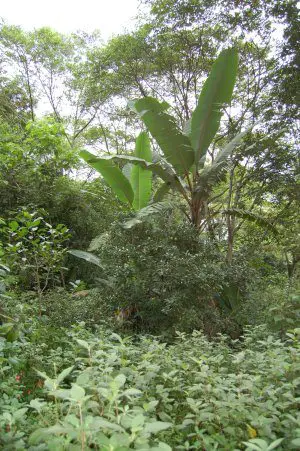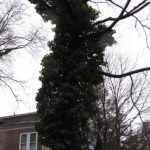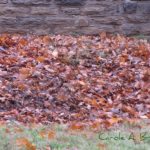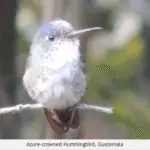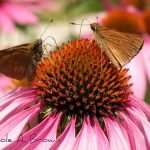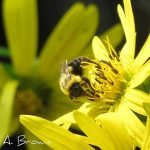I recently had the privilege of visiting a family-owned organic, shade-grown coffee farm in Veracruz, Mexico. While there, I was amazed at the numbers of amazing butterflies and birds that we observed while exploring this site, and also by how much I felt like I was strolling through someone’s garden. The notable variety of the many different plants in this environment was simply astounding.
I know at this point you are wondering what coffee production can possibly have to do with your garden, but it turns out that you can support property owners in Mexico and South America who, just like you, are making healthy and responsible choices for their properties.
Rewarding these farmers for making great decisions is one of the best ways I can think of to encourage more family farms to make these (sometimes very difficult) choices.
Over the last several decades scientists have noted long-term declines in the populations of many migratory birds. These are “our” spring migrants, also called Neotropical migrants, and include tanagers, orioles, and warblers.
These declines prompted researchers to study the whole life cycle of these birds, including their wintering habitats, which took them to Mexico and South America. Here they found that biodiversity of plants, birds, and insects, was greatly increased in areas which most resembled the native forest, including the shaded, traditional polyculture coffee farms.
It was not that the birds or insects were using the coffee plants themselves, but these farms retained a large proportion of native plants which provided food and other resources for wildlife.
It was the diversity of native plants and their structure that created welcoming habitats as opposed to the monoculture, full-sun factory farms, which did not support much wildlife at all.
In other words, there was a direct correlation between the number of remaining native plants and the numbers of other wildlife!
Structure refers to the fact that a variety of plant forms exist together to make up the forest. There are a wide variety of different types of plants: tall canopy trees, shorter understory trees, shrubs, herbaceous plants, vines, and epiphytes.
We can replicate these conditions in our own gardens by including a variety of native plants of different heights, different blooming and fruiting times, and different functions.
The other reason that coffee production is important is that we can make an enormous contribution to the welfare of our migratory birds by purchasing certified coffee. There are currently three different certifications for coffee:
1. Certified organic means that the coffee was produced without synthetic fertilizers, herbicides, or pesticides, but not necessarily that the forest was left intact.
2. Certified fair trade means that the small farmers are compensated fairly for their product, but not necessarily that it is either organic or shade grown.
3. Certified shade grown means that the plants were grown under a canopy of shade, but not necessarily a canopy of native forest, and also does not guarantee organic growing methods.
If you are a coffee drinker, the choice you make regarding this purchase can have enormous beneficial consequences for wildlife, the rainforest, and the native human population, or your choice could be harmful for all of the above reasons.
Potential short term gain for you by saving a few cents per pound can have many long-term negative consequences.
Purchasing triple certified coffee means that you are:
- supporting the continuance of the native forest
- discouraging the use of harmful chemicals
- encouraging farmers to participate in this way of production because they receive a fair wage.
- In addition, you are helping to ensure that our migratory birds and other wildlife have the habitats so necessary for their survival.
Update: At the dailygreen.com read about shade grown coffee and global warming: Turns out growing coffee the natural way may be the best way, in a warmer world
Shade grown organic coffee varieties:
- Songbird coffee Panama bean
- Songbird coffee Hazlenut bean
- Songbird coffee Guatemala ground
- Songbird coffee French Roast ground
- Songbird coffee Nicaraguan ground
More From Ecosystem Gardening:
Submit your review | |

